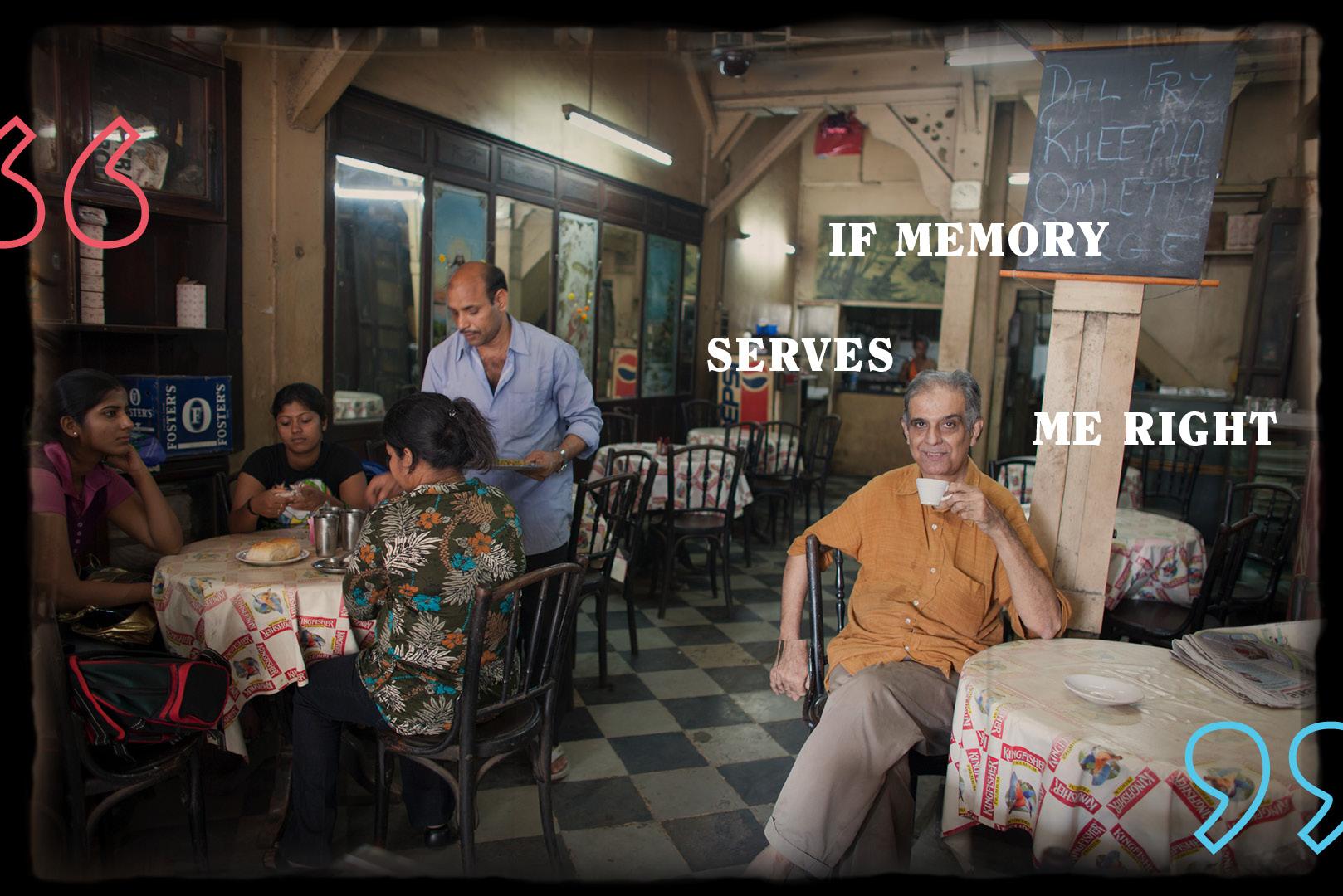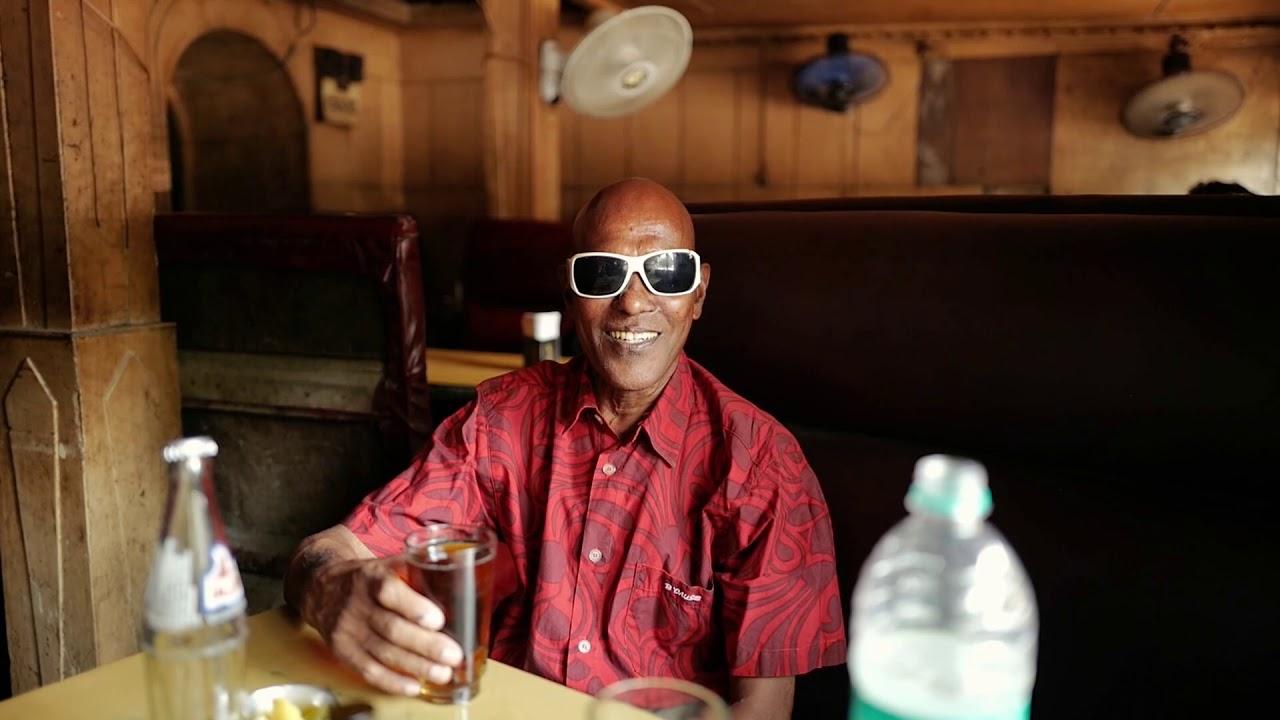Fading Realities: The Films of Rafeeq Ellias
.png)
Rashid Irani in one of the few remaining Irani cafes in Mumbai.
“I really would not know the answer to that,” replied Rafeeq Ellias to a typically loaded audience question about his views on whether technology can be rescued from the worst impulses of society. “I am a filmmaker; you would have to ask an academic who might have something to say about this,” he continued. Through the course of the evening at The Universe is in Our Bylanes held at the Bangalore International Centre, where three of his films—If Memory Serves Me Right (2022), The Legend of Fat Mama (2005), and What Man, Joe! (2018)—were showcased, Ellias continued to repudiate well-worn stereotypes of the dilettante auteur, expected to weigh in on everything from individual career trajectories to global politics. In his answer to a rambling question on the framing of a particular shot, where the subject appears like he is addressing an interviewer face-to-face, Ellias admitted that he used a wide-angle lens and that there was no intended trickery involved. In another instance, when it was pointed out that Ellias’ own visage accidentally made it to the shot in a mirror, the filmmaker recounted how he always found a new mistake at every screening of his films that he attended.

The poster for If Memory Serves Me Right, where Rashid Irani is seated in his now closed restaurant the Brabourne beer bar.
Much like his approach to the questions posed to him during the screening, Ellias’ films are best defined by a not self-serious form of the Indic concept of rajas, a value-neutral and energetic sort of passion. The three films screened on the day observed a former-restauranter cinephile and aesthete Rashid Irani, the vanishing Indian Chinese community of Kolkata, and the funeral musician Joe Vessoaker. The easy takeaway from the films is that Ellias is a perfervid archivist of people, cultures, languages and things that reified symbols of capital have callously outmoded. However, his camera is equally sensitive to the stubborn minutiae that exist on the peripheries of the long march of capital. We see this in the long, desultory conversations at the few remaining Irani cafes in If Memory Serves Me Right, where discussions manage to accommodate both Marilyn Monroe’s arresting presence in Niagara (1953) and the obscure Mandarin translator Arthur Wiley. We also see this in an extended shot of a faceless person shuffles on their knees along the pews of a Bandra church or the extended hug a woman shares with another mourner during a wake in What Man, Joe! Similarly, we get a glimpse of this when an expatriated Indian Chinese man in Canada sings two old Bombay cinema songs in quick succession in the presence of his highly amused wife and daughter in The Legend of Fat Mama. Ellias is certainly invested in all the things we stand to lose, but he tries to gesture at the many things still alive, still available, in the ashes.

Joe Vessoaker at the famous dive bar Yacht, that has since seen a renovation.
At a time where opening any app leads you to a ten-second reel of an interesting place, person, culture, or cuisine, Ellias’ films seem to have also fallen under the wheel of an algorithmically constituted digital modernity where content creators dare not linger on a moment beyond a tightly prescribed limit. His films are usually accomplished by an intimate familiarity with their subject and an unspoken appeal to the audience to spend more time with such subjects. While the new mode of content production might have brought so many more people, cultures, languages, and things to mass audiences than we could ever know what to do with, Ellias’ filmmaking reminds us that it is always worthwhile to scratch beneath the surface.

A glimpse of Kolkata's Chinatown.
Images courtesy of Rafeeq Ellias.
To read about more character-based documentary films, revisit Arushi Vats’ essay on Pelin Esmer’s The Collector (2002), Ankan Kazi’s review of Avijit Mukul Kishore’s Squeeze Lime in Your Eye (2018) and Najrin Islam’s reflection on Shaunak Sen’s All that Breathes (2022).




